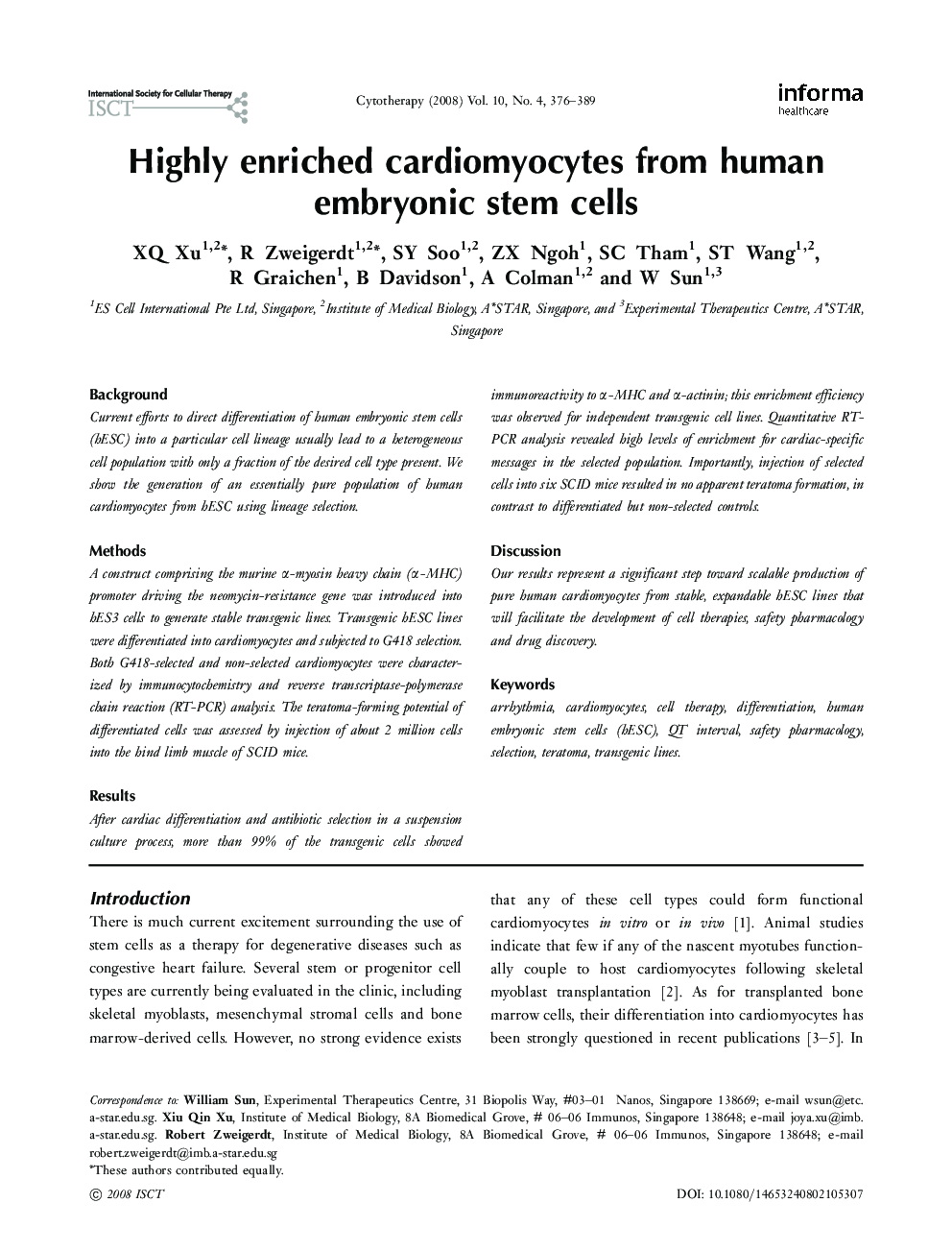| Article ID | Journal | Published Year | Pages | File Type |
|---|---|---|---|---|
| 2172461 | Cytotherapy | 2008 | 14 Pages |
BackgroundCurrent efforts to direct differentiation of human embryonic stem cells (hESC) into a particular cell lineage usually lead to a heterogeneous cell population with only a fraction of the desired cell type present. We show the generation of an essentially pure population of human cardiomyocytes from hESC using lineage selection.MethodsA construct comprising the murine α-myosin heavy chain (α-MHC) promoter driving the neomycin-resistance gene was introduced into hES3 cells to generate stable transgenic lines. Transgenic hESC lines were differentiated into cardiomyocytes and subjected to G418 selection. Both G418-selected and non-selected cardiomyocytes were characterized by immunocytochemistry and reverse transcriptase-polymerase chain reaction (RT-PCR) analysis. The teratoma-forming potential of differentiated cells was assessed by injection of about 2 million cells into the hind limb muscle of SCID mice.ResultsAfter cardiac differentiation and antibiotic selection in a suspension culture process, more than 99% of the transgenic cells showed immunoreactivity to α-MHC and α-actinin; this enrichment efficiency was observed for independent transgenic cell lines. Quantitative RT-PCR analysis revealed high levels of enrichment for cardiac-specific messages in the selected population. Importantly, injection of selected cells into six SCID mice resulted in no apparent teratoma formation, in contrast to differentiated but non-selected controls.DiscussionOur results represent a significant step toward scalable production of pure human cardiomyocytes from stable, expandable hESC lines that will facilitate the development of cell therapies, safety pharmacology and drug discovery.
